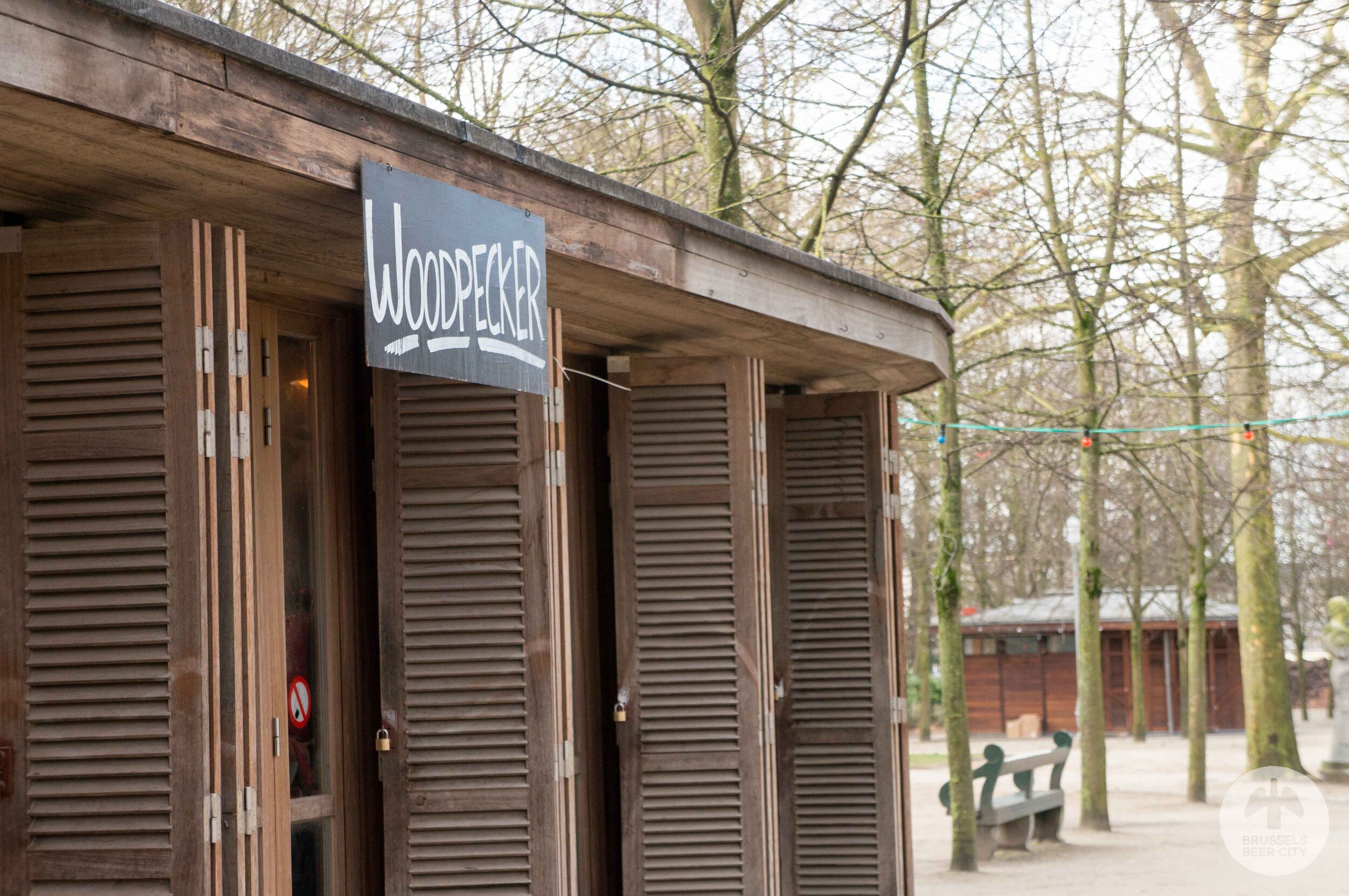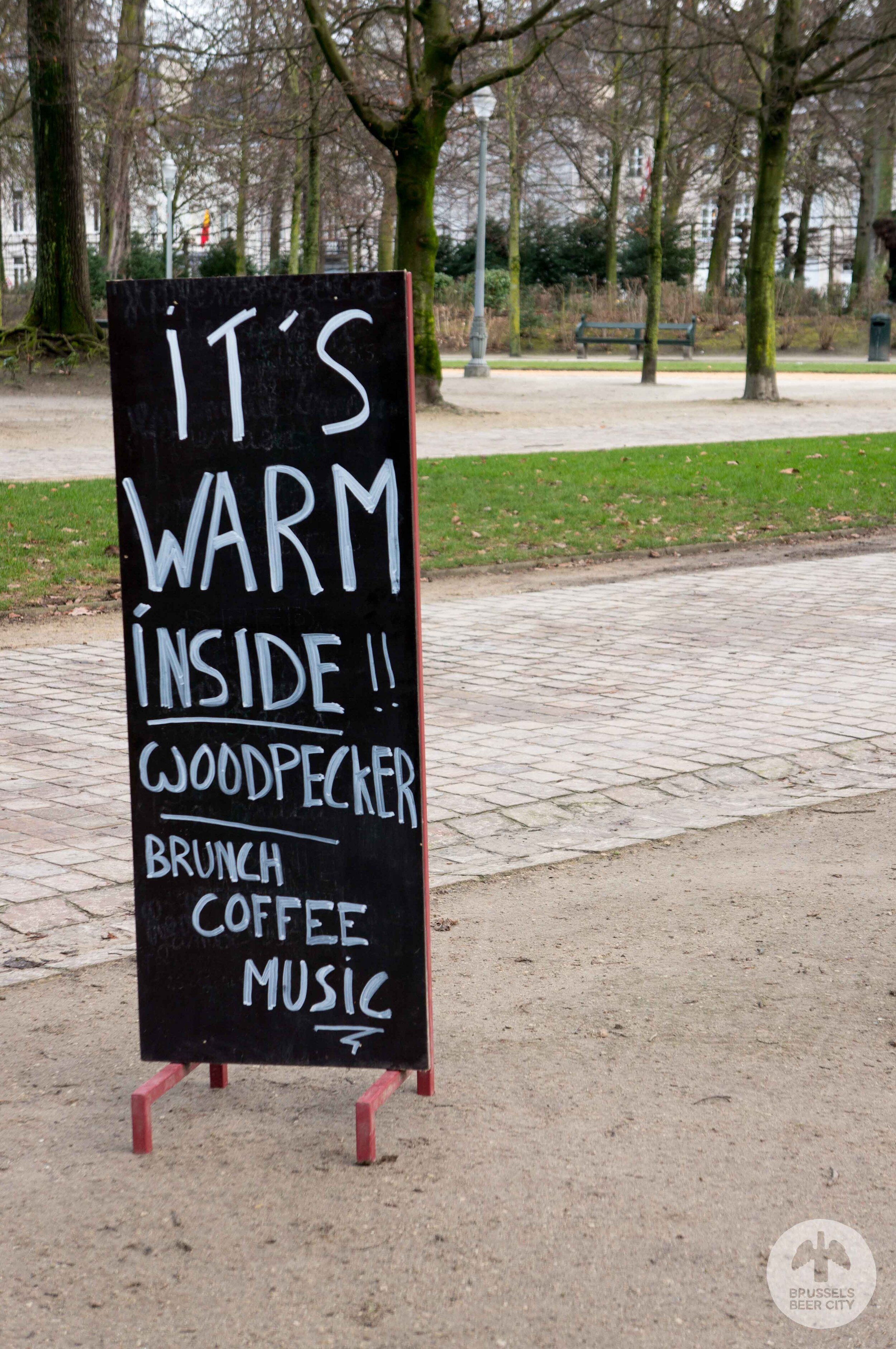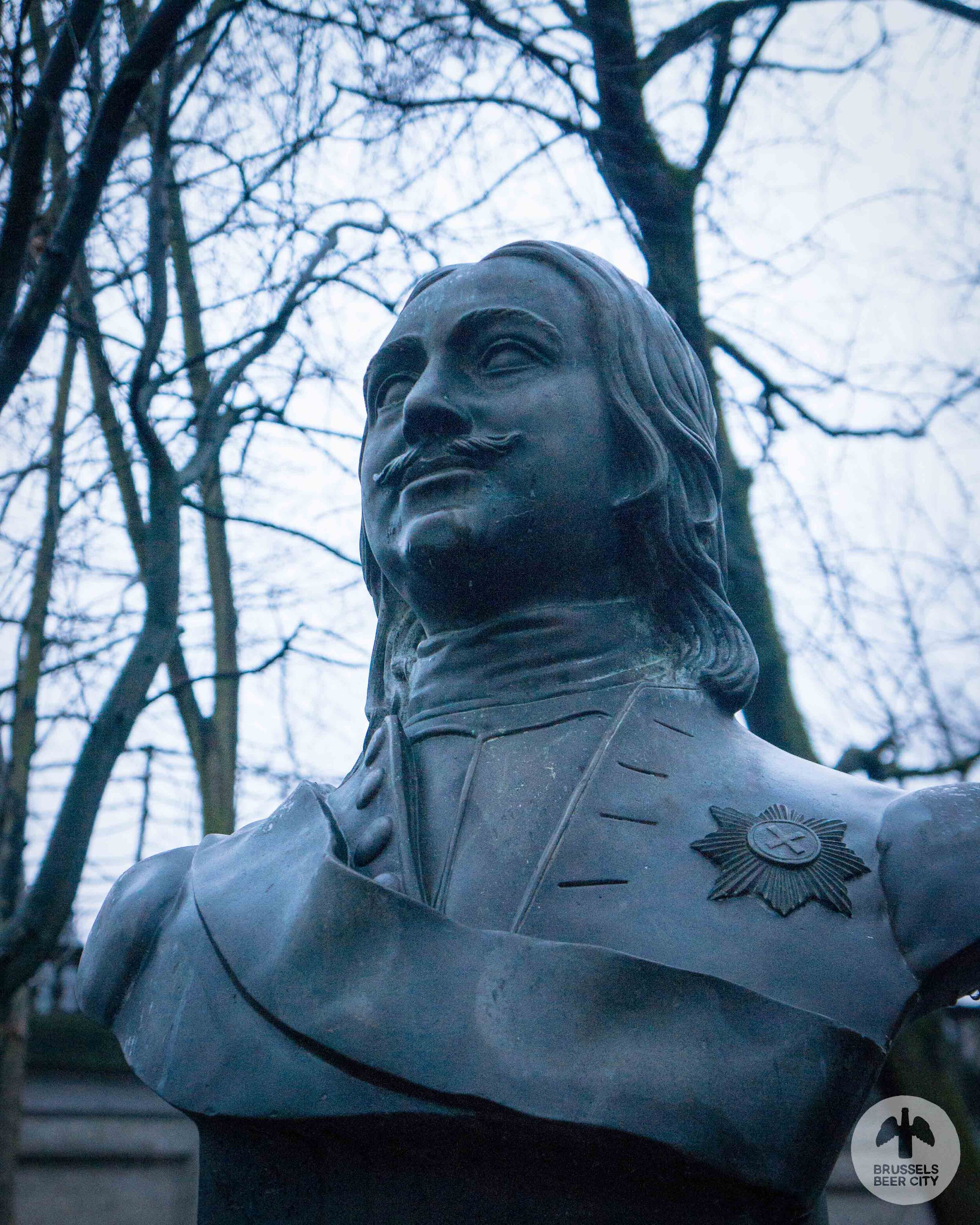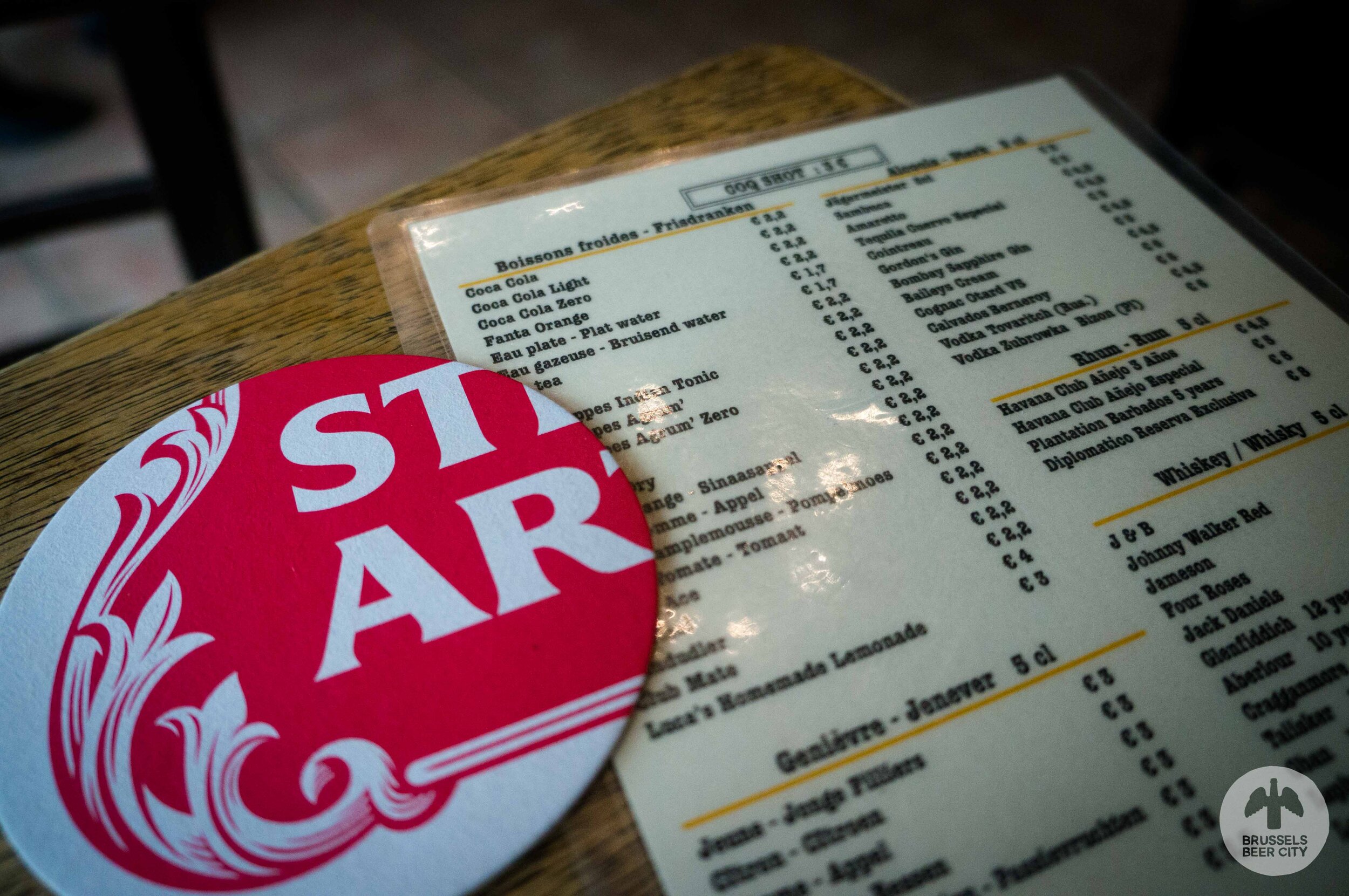On the lash with Baudelaire // A literary pub crawl through Brussels, Act Two
Brussels throughout its history has been home to many writers and artists. Some of them have been visitors, others more permanent residents – both happy and, more frequently, reluctant. Nobody exemplified the writer living unhappily in Brussels better than Frenchman and serial flâneur Charles Baudelaire. Prompted by an exhibition about Baudelaire’s ill-fated time in Brussels, I set off on a tour of what remains of Brussels’ literary haunts. This is the second part of that tour. Part one – where I followed in the footsteps of Victor Hugo, Karl Marx, and others – is here.
Leaving behind Victor Hugo and the Chaloupe D’Or café on Brussels’ Grand Place, my walk follows the well-worn tourist path out of the square and into the Galeries Royales Saint-Hubert. These glass-ceiling shopping arcades were a first in Europe when they were built in 1847 and immediately they became a meeting place not only for the city’s bourgeoisie but also for its writers and artists. It was here that the Lumière brothers showed off their cinématographe for the first time outside of Paris, in March 1896. Victor Hugo’s mistress, Juliette Drouet – Juju – has an apartment above what is now the francophone Tropismes bookshop. French poet Paul Verlaine once purchased a revolver here with his mother. And, living a couple of streets away while escaping debts and creditors back in Paris, Charles Baudelaire was a frequent visitor.
“Everything is bland, everything sad, flavourless, asleep”
When not holed up in his sparse garret at the Grand Hotel Miroir, feeding his pet bat with milksops and complaining about the hotel’s cooking, he walked the arcades for exercise, stopping when he had the money for a haircut at No. 53. I settle in at the terrace outside the Mokafé Taverne, which gives me a solid view of the passing shoppers. The arcades are still a redoubt of bourgeois shopping sensibilities and hat shops, glove shops, and chocolate shops proliferate (there are no barbers).
A waiter brings me a Brugs Zot blonde, and a welcome bowl of nuts. In the seat nearest me, two women with North American accents sip their glasses of wine and take in the same scene. The beer is chewy, fruity and spicy, with a lightly bitter finish. Baudelaire was not a well man during his brief time in Brussels. After two years in the city, he was carted away to France after collapsing into ill health several times; he was dead barely a year later. It’s not hard to imagine the mad Gallic syphilitic careening through the arcades, nightsheet flapping in the wind, impoverished and desperate, bemoaning his fate to end up in a Brussels he cursed as smelling of black soap and where “everything [is] bland, everything sad, flavourless, asleep.”
Beer finished and Baudelaire’s former lodgings long since demolished, I take a brisk walk out of the arcades, around the Art Deco central train station and the Bozar arts complex. I’m looking for Rue Terarken and a plaque honouring the Brontë sisters. It is not easy to find and involves descending below the street into the Bozar’s undercarriage and into what looks like a dead end. A roadie emerges confused from a service entrance, and in garbled French I tell him why. This only adds to his confusion, but I eventually find the plaque at the end of the laneway.
“Instead of stupor, came excitement… a land of enchantment, a garden most gorgeous, a plain sprinkled with coloured meteors”
“A forest with sparks of purple and ruby and golden fire”
It was here – or at least a geographical approximation of here – that Charlotte Brontë and her sister Emily lived at a Brussels boarding house from 1842-1843. It turns out there’s another plaque, stuck to a wall at street level, that also claims to be the site of the Brontë’s residence. What’s not in doubt is that the sisters spent a good chunk of their time in Brussels at the nearby Warendepark, a prominent character in Charlotte’s semi-autobiographical novel Villette. We don’t know what Charlotte thought about Brussels beer, but it seems that she did imbibe another, altogether more mind-altering substance. In La Villette, a curative dose of opium for the novel’s heroine gives rise to a drug-fuelled wander through the park: “Instead of stupor, came excitement… a land of enchantment, a garden most gorgeous, a plain sprinkled with coloured meteors, a forest with sparks of purple and ruby and golden fire gemming the foliage.”
Strong stuff, but I’ll have to make do with Zinnebir on tap at one of the park’s kiosks that was reconverted into a bar by a consortium including Brasserie de la Senne’s Bernard Leboucq. I could stop for one, or like another of the park’s famous visitors I could drink until I threw up and stagger home. On a visit to Brussels in 1717 Peter the Great, Tsar of Russia, found himself the worse for wear in the park, a victim of too much carousing. He allegedly vomited before falling into a fountain, and now there’s a curious bust of the tsar placed in a deep well between the kiosks and the park’s walls.
The bar is full and the weather inclement, so I trudge onwards, out of the park and past the Musées royaux des Beaux-Arts, where in 1938 as Europe crumbled WH Auden sat and contemplated Brueghel’s Icarus, “a boy falling out of the sky”. My destination, after walking through the Sablon neighbourhood is a classic Brussels literary café. Arriving through the curtained doorway, Het Goudblommeke in Papier is rammed. The café was long a hideaway for the city’s artists and writers, and today is home to a cultural charity promoting the local Brussels dialect. It’s groups of the latter that have flooded the room, forcing me to take a seat at the bar. Next to me a man in suede waistcoat, flat cap and cravat interacts with staff and customers alike with a knowing familiarity.
Goudblommeke in papier - “Never in my life have I met a stranger man”
A young father enters behind me with a buggy in tow and, quickly disabused of the idea there might be space for him, he turns and flees. I watch hawkishly for a table to open up. Sure enough, I soon settle down at a rickety wooden table wedged into a nook opposite the bar with my notebook in hand and a cloudy glass of flat, cool and tart Oud Beersel lambic in front of me. Through an open doorframe I spot a man hunched over a tatty copy of a guide to the beers and breweries of Brussels and the Payottenland.
““The most nauseous little river in the world…converted into beer for Brussels’ inhabitants”
The café was popular with, among others, Rene Magritte and Georges Rémi, the latter better known as Hergé, the creator of Tintin. After WWII it became a place for writers, including Belgian literary figures Hugo Claus, who had his first wedding reception here, and Louis Paul Boon. Boon, Flemish novelist of the downtrodden working class and as far as I know no relation to the eponymous geuze brewery, described the café as “one of the quintessential old cafes that existed in Brussels” run by “Gust (sic) of Bruane, and never in my life have I met a stranger man.” The writers moved on in their turn, but the café’s literary history is palpable in the knickknacks, aphorisms and artwork on the walls, in amongst the bric à brac of local football teams and polaroids of guests past. Boon and landlord Gust long since departed, and glass emptied I follow their lead out the door.
A friendly prison for rash poets
I head downhill into the city’s medieval core, making a slight detour to end up at the cramped junction of Rue de l'Étuve and Rue des Brasseurs. To my left is the city’s filigreed gothic town hall, and in front of me is the upscale Hotel Amigo. But just over my shoulder, stuck above a down-at-heel lace shop is a plaque memorialising one of the odder events in Brussels’ literary history. It was here on July 10 1873 that French poet Paul Verlaine – tanked up on absinthe from a nearby English tavern –shot at his estranged lover Arthur Rimbaud for the second time. Rimbaud, understandably, sought police protection and Verlaine ended up in the Amigo prison. The prison was located on the spot where the Hotel Amigo now stands and which 25 years before Verlaine had accommodated Karl Marx and his wife pending their expulsion from Belgium, Marx having finally worn down the patience of his host country.
I cut through the Grand Place towards the Beursplein primed for one final beer. The centre of Brussels is undergoing one of its periodic urban convulsions and there are roadworks everywhere. 150 years after the Senne river – decried by Baudelaire as a cesspit and by another writer as “the most nauseous little river in the world…converted into beer for its [Brussels’] inhabitants” – was buried, the boulevards built on top of it are being converted into a car-free area. Picking my way through the rubble, I arrive outside café Le Coq.
Early on a warm summer day in the 1970s, Belgian actor/director/dramatist/writer Josse De Pauw sidled into Le Coq for a quick coffee and a read of the paper. There were weightlifting trophies on the mantelpiece from the boys who pumped iron in a room above the bar. The place reeked of bleach and stinking toilets. In one corner were a pinball machine and a trekbiljart table, and on the wall opposite De Pauw hung a reproduction of Breughel’s “The Peasant Wedding”.
“...idiots from the mercenary legion, old women talking to themselves, actors, ladies of a certain age with gigolos, dancers on the drink, failed entrepreneurs, strangers in full integration ... everything.”
What happened next convinced him Le Coq was worth his attention. Bruna – landlady and robust daughter of Italian immigrants – “brought my coffee…she came back with a bucket and sponge, kicked her shoes off, stepped with stockinged feet onto the bench and began with warm soapy water to clean the Breughel. It dripped in broad strokes from the painting, and I still know what I thought: they should do this with all art.”
“Bums, body-builders…starched civil servants” at Le Coq
In subsequent years De Pauw spent many nights drinking Stella Artois with Bruna’s Elvis-impersonating, big band-loving husband Jean-Pierre and his circle of artistic friends including director and author Marc Didden musician Arno, and theatre director Jan Decorte. When Bruna and Jean-Pierre left and the bar was threatened with closure in the 1990s it was Brussels-based dance choreographer Anne Teresa de Keersmaeker who rallied the bars clientele to rescue it, clientele De Pauw described in his 2004 anthology Nog as “bums, body-builders, single ladies, pierced young men, starched civil servants, painters, filmmakers, journalists, political idealists, notorious racists, theatre technicians, girls from the Maria Boodschap [high school], idiots from the mercenary legion, old women talking to themselves, actors, ladies of a certain age with gigolos, dancers on the drink, failed entrepreneurs, strangers in full integration ... everything.”
Breughel is still there – although it’s a different painting than in De Pauw’s recollection. So are, somewhat miraculously, are the bodybuilding trophies. The benches that Bruna once mounted are much the same, and the wooden panelling is shiny in patches, its varnish worn from years of washing.
The café, sparsely populated, smells of age and old beer. Atonal violins and EDM have replaced chanson. Most customers are drinking coffee, tea and water; in one corner is a man crouched over some notebooks, chunky black magnifying glass in hand to help him make sense of his scribbles. In another, a grey-haired man still in his raincoat sleepily turns the pages of one of the café’s newspapers.
The beer list has expanded since De Pauw’s time – Brasserie de la Senne and Nanobrasserie L’Ermitage feature prominently on chalkboards next to the bar. Taking De Pauw’s lead, and being cheap, I instead plump for a pintje of Stella and settle in. Le Coq, however much changed since De Pauw’s years of carousing, is still an essential feature of Brussels’ inner city. It is one of the great survivors, not particularly exceptional but, as De Pauw wrote, “ordinary, but offering space for the most unusual.”
Postscript: if all this drinking and walking has loosened your inhibitions and your wallet, do as I did and walk a little further to the Passa Porta bookshop and splurge on beautiful books you’ll never read from authors you’ve vaguely heard of.














